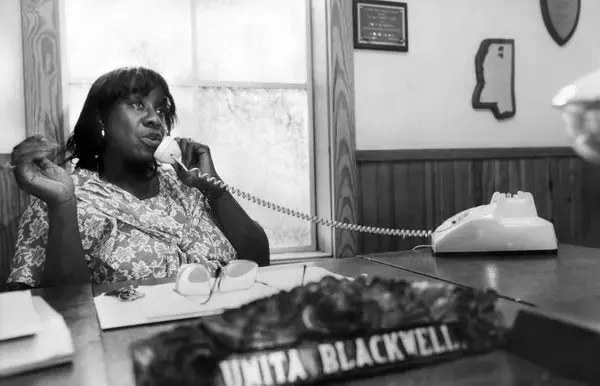Black August Spotlight: Unita Blackwell - Visionary, Icon, Community Leader
- Sipp Talk

- Aug 20, 2025
- 2 min read

Born on March 18, 1933, in Lula, Coahoma County, Mississippi and given the moniker U.Z. Blackwell by her uncle, she later chose the official name of Unita Zelma Blackwell after being promoted by a teacher. This moment foreshadowed her future as a trailblazer and change maker.
With a political career spanning three decades, Blackwell’s activism began in 1964 after meeting Mrs. Fannie Lou Hamer and deciding to join the Student Nonviolent Coordinating Committee (SNCC) and participating in a voter registration drive, where Black citizens had to pass a voter registration test, which resulted in being accosted by white farmers and costing Blackwell her and her husband’s job.

“Change depends on people knowing the truth. Change depends on people speaking that truth out loud. That's what movements do. Movements educate people to the truth..."
Her personal struggle for her family’s rights continued after the birth of her son who would be discriminated against along with 300 other students in Issaqueena County who were suspended for wearing SNCC pins showing a Black and white hand clasped together in solidarity for having improper political messaging.
In the 1965 case Blackwell v. Issaquena County Board of Education, the favorable ruling resulted in one of the first desegregation decisions in the nation and helped Mississippians see more equitable educational opportunities.

"...Movements are the way ordinary people get more freedom and justice. Movements are how we keep a check on power and those who abuse it.”
After becoming more involved as an activist, Unita Blackwell became a member of the executive committee of the Mississippi Freedom Democratic Party (MFDP), which provided a party for voters that SNCC had been registering to vote.
Her political and community impact for Mississippians continued to reverberate by bringing headstart programing for Black children, creating opportunities for economic independence for Black women, and increased educational support for youth.
Unita Blackwell served as mayor of Mayersville, Mississippi from 1976 to 2001 making her the first female African-American mayor of a municipality in the state.
Her work for the public did not stop there as she also served as an international delegate between the U.S. and China as president of the US–China Peoples Friendship Association in 1979 making over 16 visits to the country during her tenure.
“Politics is not just about voting one day every four years. Politics is the air we breathe, the food we eat, and the road we walk on.” - Unita Blackwell
Unita Blackwell’s legacy is one that all Mississippians should be proud of. Her activism, ingenuity, and fervor for political freedom are a testament to her enduring spirit as a political leader and community change maker. By overcoming hurdles in economic, educational, and political sectors Mrs. Blackwell forged a path that has allowed access to better qualities of life for Mississippi and the nation. We thank her for her leadership and contributions that we all continue to benefit from.





Comments